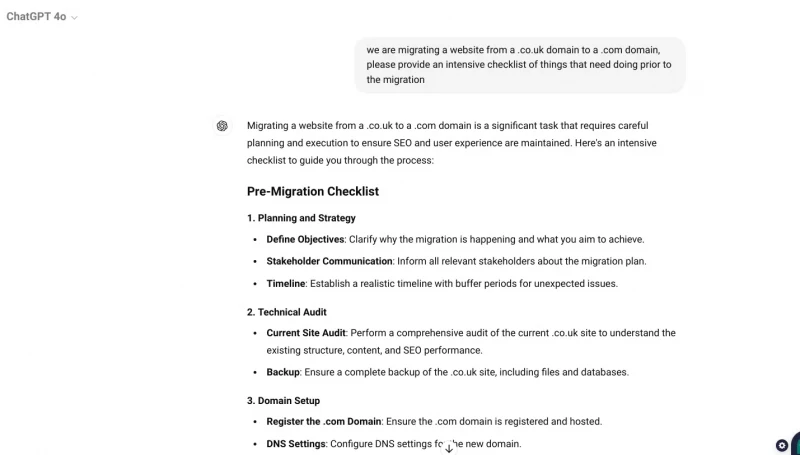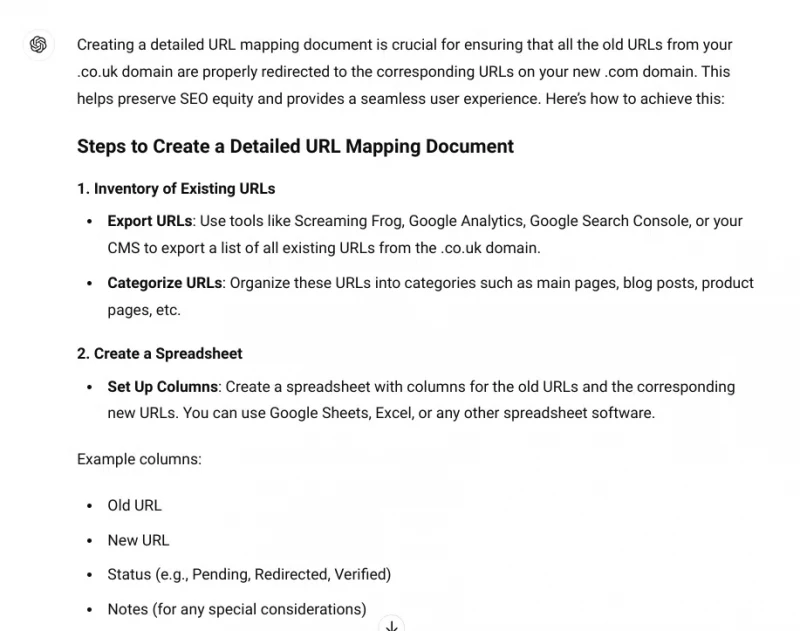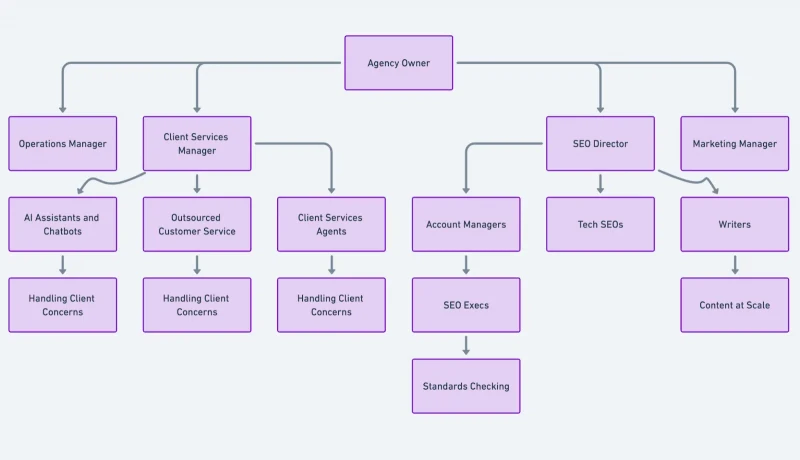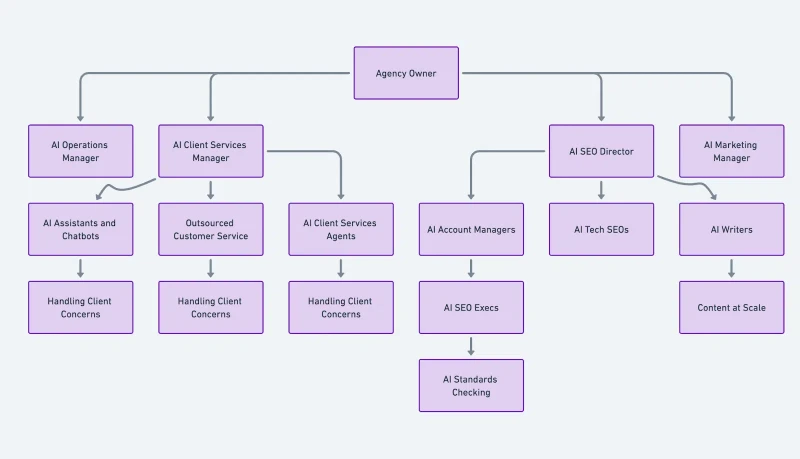The billion-dollar one-person SEO agency: Fiction or the future?
Sam Altman, cofounder of OpenAI, is in a betting pool with other tech CEOs.
The bet is simple.
What the first year will be for a one-person billion-dollar company?
This article will examine whether a billion-dollar, one-person SEO agency can emerge.
Is it pure fiction or is it the future?
What Altman said
If we look at what Sam Altman said, he initially stated that we would see the emergence of 10-person billion-dollar companies soon.
Sam Altman says it is only a matter of time until there is a one-person billion dollar company pic.twitter.com/qCyMShu2M1
— Tsarathustra (@tsarnick) February 5, 2024
“We’re going to see 10-person companies with billion-dollar valuations pretty soon…in my little group chat with my tech CEO friends, there’s this betting pool for the first year there is a one-person billion-dollar company, which would’ve been unimaginable without AI. And now [it] will happen.”
– Sam Altman, Cofounder, OpenAI
The first goal is to see if we can reach a 10-person billion-dollar SEO agency.
But we also need to be clear: when I say a billion dollars, I mean the company valuation, not turnover.
The turnover for that valuation could be described as $100 million in annual recurring revenue… ouch!
My brain is already hurting, so let’s try and break this down.
Arise AI SEO agents
We’ll need AI agents for a 10 or even 1-person SEO agency to be worth $1 billion.
These AI agents will take care of the tasks that SEOs do now.
Before you close this down, consider the makeup of the average SEO agency.
With the emergence of AI, the roles of operations, client services, writers, SEO execs, account managers, SEO directors and tech SEOs could be significantly transformed or even replaced by AI agents, potentially reshaping the entire SEO industry.
AI agents could effectively handle these roles, demonstrating their adaptability and potential in the SEO industry.
We already see a lot of customer service being outsourced to AI in every sector, so why not SEO?
Account management could be as easy as receiving a client’s email or chat message. The agent would send a reply based on their account status.
It’s hard to imagine why this wouldn’t be faster and better for clients.
As a general rule, if what you do needs clicks on a computer, AI agents can be trained to do the same as you.
They only need to understand the game’s rules and what perfection looks like.
Even today, GPT can create SEO checklists in seconds:

And then tell you how to undertake each part.

This is alongside the likely future website having its own AI that can instantly alter URLs and make sitewide changes.
For instance, an AI could be programmed to identify and fix broken links, optimize meta tags or even suggest content strategies based on user behavior, automating many of the tasks currently performed by SEO professionals.
It’s easy to see how SEO AI could communicate with AI web devs inside the platforms.
When I raised this point on LinkedIn long ago, a few SEOs said:
“AI will never be able to do that?”
Ding dong… wake up, people.
AI is being used to detect cancers and complicated online fraud.
Don’t confuse the current version of AI with what is coming.
Dig deeper: Could AI eventually make SEO obsolete?
How would this system work? In a one- or 10-person agency using AI, you’ll see a range of roles performed by either a single person in charge or by a few.
Let’s break this down into phases.
Phase 1: 10-person agency

Agency owner
Sitting on top of the tree is the agency owner. Their job is to be the agency’s voice and marketer.
Yes, they will have a marketing manager, but they are the business’s CEO and main driver.
It is the owner that negotiates deals and brings in clients.
Operations
The operations manager handles the machine and ensures it runs smoothly, including contracts, staff wages, HR, etc.
Marketing manager
Using AI to generate content and run ads, the marketing manager helps the business to be seen.
Client services
This is the most important role outside of the owner’s involvement.
AI client services will have an army of agents, chat assistants and ways for large volumes of clients to have their concerns handled.
Like any modern business, AI assistants, chatbots and outsourced customer service will be available. No-code tools such as Make allow for automation, especially in customer service.
The client services manager gets involved only when a problem becomes too much for AI. This will allow a client services manager empowered by AI to handle countless clients.
Writers
Large language models (LLMs) can manage content at scale, so this doesn’t need much explanation. However, one or two writers are needed to ensure the content is created effectively.
SEO execs
An AI-empowered SEO exec will largely ensure that the agencies are running effectively.
They ensure the work gets done by ensuring the agents have what they need.
Account managers
The account managers are overseeing it all.
As the standards checkers, they make sure agents are doing the work correctly.
SEO directors
The SEO director in an AI world decides the strategies, the processes and the right technology to use.
Assisted by AI agents that can build entire strategies, the director ensures the results are happening agency-wide.
Tech SEOs
A tech SEO in this world is fixing the AI agents. They are an AI technician.
In this model, a 10-person agency could handle many clients and enjoy high profits.
Dig deeper: Will AI replace SEO professionals?
SEO is about patterns, which AI loves
Tools like Semrush have led the way with their highly useful AI SEO assistant.
Ahrefs has brought out its equally impressive page inspection and content changes tool, which allows you to see what changes were made on a website to increase its rankings.
Both tools are gaining data that is going to train their AI models.
In the not-too-distant future, AI can reverse engineer precisely what you need to rank simply by observing sites in every niche and the changes that lead to better results.
Remember, SEO is largely a game of recognizing and applying success patterns in the SERPs.
Hold on. If Ahrefs and Semrush will unlock the secrets to SEO, won’t that mean everyone will plug their websites into those tools?
This isn’t SEO communism; it’s a capitalist market, one in which numerous SEO tools will compete for customers, each gathering data and developing its own AI models.
The same goes for SEO agencies.
For any SEO agency to be that 10 or even one-person billion-dollar brand, they’ll have to win clients.
Those clients will want to avoid dealing with SEO tools or platforms or setting up AI agents; they’ll equally be running their own organizations.
But for now, let’s be clear.
We’ll be able to set up AI agents to handle everything from client onboarding to SEO tactics and delivery.
And that is a key part of the next bit.
‘Who has the best SEO AI agents?’
If we eliminate staff from the SEO, we inevitably end up with a replacement.
An army of AI agents, but these need training from SEO.
This will be the first port of call for differentiation in the market. The actual ability of the AIs through their training.
Even with data from SEO tools about what’s working and what isn’t, SEOs will still decide how to train their AIs and what to focus on.
And even with AI agents, SEOs can still differentiate themselves in the market.
Phase 2: The one-person billion-dollar SEO agency

If Phase 1 introduced the AI model with 10 (or so) people, Phase 2 occurs when AI is so powerful that it handles everything.
This is simply a case of a person setting all the AI up so it does SEO the way they want.
The AI is the super extension of the freelancer.
Remember “The Matrix” films where Agent Smith could replicate himself as a program? The SEO experts are doing the same, making themselves into numerous other versions with AI.
It sounds far-fetched, but AI has already empowered SEOs to increase productivity. This is just the next evolution.
This might be years away… maybe decades.
But it could be a possibility.
AI tools that create super SEOs.
However, for any agency to reach that volume of business, there needs to be a pipeline.
Marketing: It’s the game changer
We’ve been through the most problematic economic years in living memory.
Agencies are finding it hard right now.
This has shown us how important marketing is in winning business.
Brand is everything, and it grows through sales.
Sales happen when two things increase.
- Mental availability: The likelihood of being thought of in a buying situation.
- Physical/digital availability: The ease and convenience of being purchased from.
Be easy to mind and easy to find.
And here, the one-person billion-dollar brand will need to thrive.
They will need to have brands big enough to suck in such a mass of high-paying clients/high volume that they reach those figures.
If you spend time on any social platform, you already see this.
SEOs who are creating huge personal brands.

Here are some stats from my own personal brand impact on Linkedin.
And this is how SEO is heading.
In the era of AI, we’ll see agency marketing become the biggest superpower.
The ‘who’ you hire will be the most important, not because they are better than others but because they are more visible.
They say smart things.
They run adverts that get your attention.
They write books.
They have newsletters.
They get your attention.
Dig deeper: How SEO grows brands: The science behind the service
So, can we build this agency?
Will there be a $1 billion one-person SEO agency?
With inflation, in a decade or so? It still seems unlikely.
However, this exercise shows that agencies can become more AI-empowered.
Less staff, more profit, increased value for clients and staff.
This seems to be the future.
- Lean AI-powered SEO agencies competing with AI-powered freelancers.
- AI agents being used to automate every SEO task possible.
Perhaps AI spells the end for the big agency?
Only time will tell.
And I do believe the future of SEO lies with AI.
But then again, doesn’t everything?